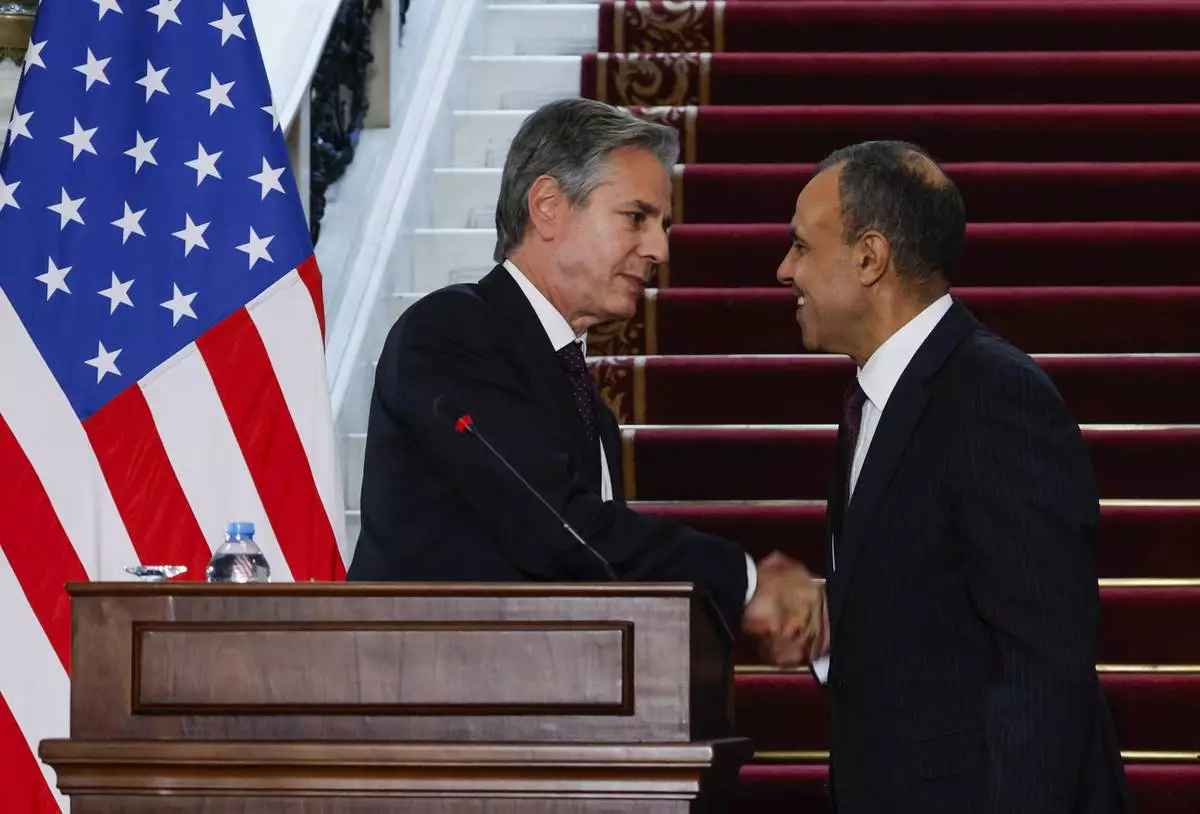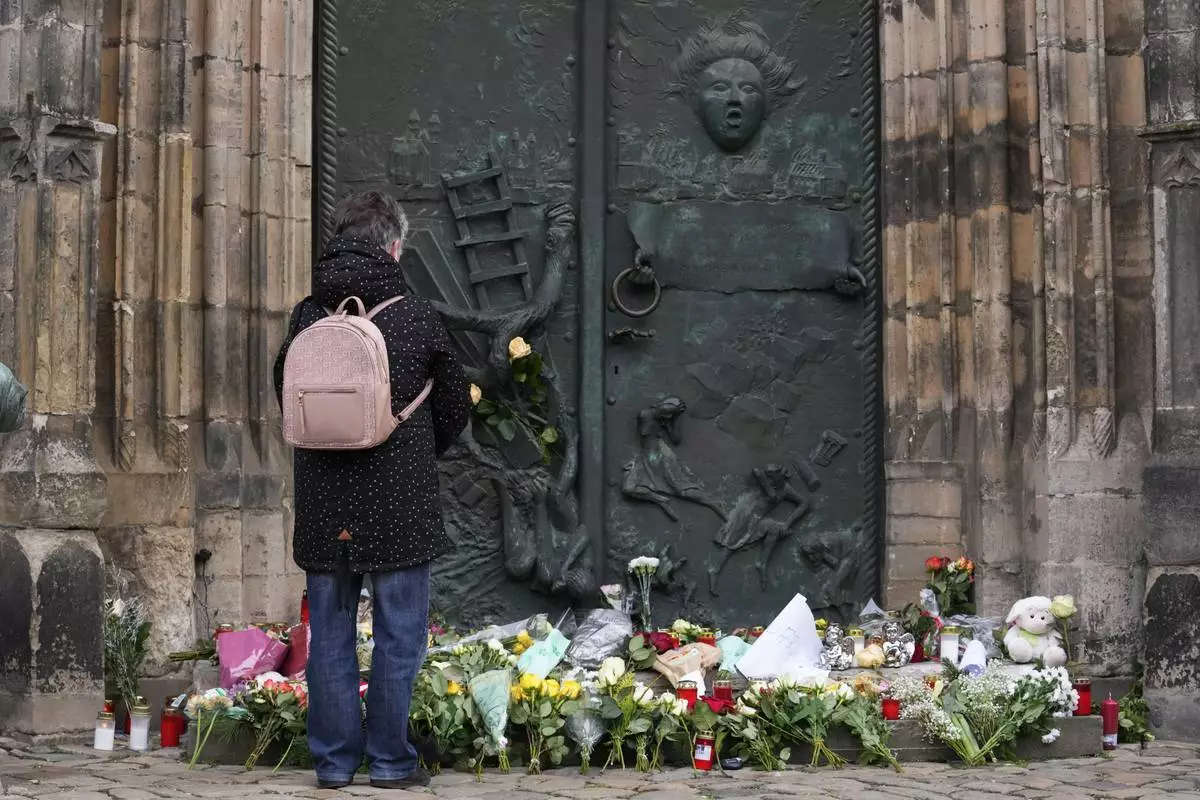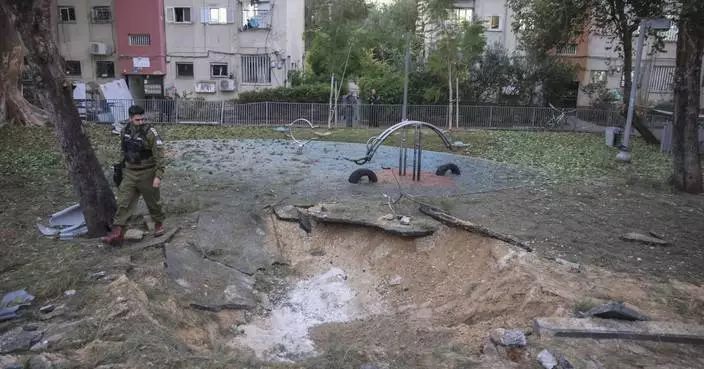WASHINGTON (AP) — The Biden administration is taking a more hands-off approach than usual during a week of dramatic escalation between Israel and Hezbollah militants in Lebanon, with top U.S. officials holding back from full-on crisis diplomacy for fear of making matters worse.
The public restraint follows explosions of the militant group's pagers and walkie-talkies and an Israeli airstrike targeting a senior Hezbollah operative in Beirut, which threaten to spur all-out war between Israel and its enemies in the Middle East and doom already faltering negotiations for a cease-fire in the Hamas conflict in Gaza.
The escalation came even as two Biden administration officials stopped in the region this week to appeal for calm. It heightens the impression that Israeli Prime Minister Benjamin Netanyahu's hard-right government is paying ever less attention to the mediation efforts of its key ally, despite depending on the U.S. for weapons and military support.
“The United States looks like a deer in the headlights right now,” said Brian Katulis, a senior fellow for U.S. foreign policy at the Middle East Institute think tank in Washington. “In terms of words, deeds and action ... it's not driving events, it's reacting to events.”
There has been no publicly acknowledged U.S. contact with Netanyahu since senior White House official Amos Hochstein visited Israel on Monday to warn against escalation. The first wave of device explosions — widely blamed on Israel, which didn’t acknowledge responsibility — struck the next day.
And Gaza cease-fire negotiations were at such a delicate point that Secretary of State Antony Blinken visited only Egypt in a trip to the region this week because traveling to Israel in support of a deal might cause Netanyahu to say something that undermines the U.S.-led mediation, U.S. officials said.
Asked if the U.S. still had hope for a deal in Gaza — which the administration calls crucial to calming regional conflict — President Joe Biden said Friday that he did and his team is pressing for it.
“If I ever said it wasn’t realistic, we might as well leave,” Biden told reporters. “A lot of things don’t look realistic until we get them done. We have to keep at it.”
In the meantime, the White House and State Department have declined to comment publicly on the Hezbollah devices exploding Tuesday and Wednesday, killing at least 37 people and injuring thousands more, including civilians, in what analysts believe was a highly sophisticated Israeli intelligence operation.
Nor would they offer any assessment of an airstrike Friday in a densely populated part of Beirut — the deadliest such strike on Lebanon’s capital in years — which killed a Hezbollah commander. The Israeli military said 15 other operatives also were killed. Lebanon's health ministry said Saturday the strike killed at least 31 people, including seven women and three children.
Netanyahu and Hamas have followed past rounds of direct U.S. diplomatic outreach with fiery rhetoric or surprise attacks that the U.S. sees as setting back the effort for a truce.
Blinken appeared to loop in the pager explosions as the latest example of that.
When mediators seem to make progress in a Gaza deal, often there's an “incident, something that makes the process more difficult, that threatens to slow it, stop it, derail it,” Blinken said in Egypt, in response to reporters' questions about the pager attacks.
There may yet be high-level contact with Netanyahu when he travels to New York for next week’s U.N. General Assembly gathering of world leaders, said U.S. officials with knowledge of the discussions who spoke anonymously to discuss the administration’s strategy. But the officials also acknowledge that the situation has become so precarious that taking a public stance either firmly in support or critical of Israel would probably do more harm than good.
In Washington, State Department spokesman Matthew Miller batted away a question about whether months of Biden administration visits to the Middle East without a cease-fire deal to show for them was making Blinken and other officials look like “furniture” in regional capitals.
“So far, we have been successful of keeping it from turning into an all-out regional war,” Miller said. He credited U.S. messaging — sometimes through intermediaries, to Iran, its militia allies in the region and to Israel.
The Biden administration pointed out that Defense Secretary Lloyd Austin has been in contact this week with his Israeli counterpart, Yoav Gallant. Gallant's job, however, is said to be in jeopardy.
Critics accuse the administration of pushing a deal on Gaza that’s repeatedly failed to win buy-in from the warring sides and has been outpaced by the growth of the conflict. The administration could do more diplomatically, including by working harder to rally Middle Eastern countries to intensify pressure on Israel, Iran and the latter’s proxies to stop fighting, said Katulis, the Middle East Institute analyst.
U.S. officials rejected assertions that they have given up on either a Gaza cease-fire or preventing the conflict from spreading to all-out war in Lebanon.
“We'd be the first ones to recognize ... that we are not closer to achieving that than we were even a week or so ago,” national security spokesman John Kirby said Friday.
“But ain't nobody giving up," Kirby said, reiterating that the U.S. was working with fellow mediators Qatar and Egypt to put together a final Gaza proposal to present to Israel and Hamas. “We're still going to keep the shoulder to the wheel. We're still going to keep trying on this.”
Associated Press writer Aamer Madhani contributed to this report.

U.S. Secretary of State Antony Blinken shakes hands with Egypt's Foreign Minister Badr Abdelatty during a joint press conference in Tahrir Palace in Cairo, Egypt Wednesday, Sept. 18, 2024. (Evelyn Hockstein/Pool Photo via AP)

U.S. Secretary of State Antony Blinken attends a joint press conference with Egypt's Foreign Minister Badr Abdelatty in Tahrir Palace in Cairo, Egypt Wednesday, Sept. 18, 2024. (Evelyn Hockstein/Pool Photo via AP)

People gather near a damaged building at the scene of an Israeli missile strike in the southern suburbs of Beirut, Friday, Sept. 20, 2024. (AP Photo/Bilal Hussein)










